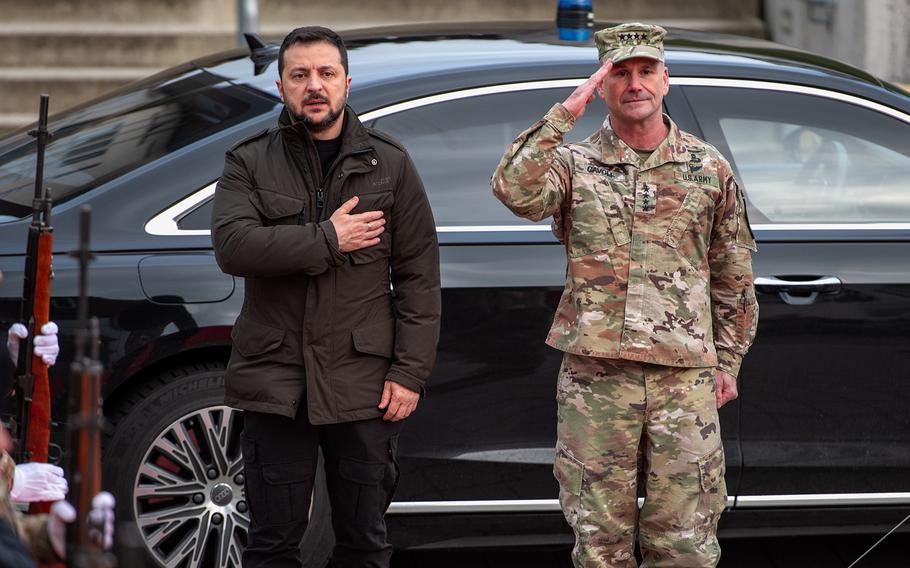
Gen. Christopher Cavoli, NATO’s supreme allied commander and head of U.S. European Command, is flanked by Ukrainian President Volodymyr Zelenskyy at a meeting in Wiesbaden, Germany, on Dec. 14, 2023. (Susanne Goebel/U.S. European Command)
STUTTGART, Germany — The Russian military lacks enough troops for a major breakthrough in Ukraine despite recent battlefield gains, the top U.S. military commander in Europe said this week.
Gen. Christopher Cavoli, speaking at the end of high-level talks Thursday in Brussels, said problems in the Russian army will likely confine it to incremental advances for now.
“The Russians don’t have the numbers necessary to do a strategic breakthrough,” said Cavoli, NATO’s supreme allied commander and head of U.S. European Command.
The Russians also are hindered by the low quality of their force, as heavy casualties have taken a toll on the officer corps, according to NATO officials.
“They don’t have the skill and the capability to … operate at the scale necessary to exploit any breakthrough to strategic advantage,” Cavoli said.
His comments come after a series of Russian advances in recent days that has caused alarm in Ukraine. While the Russians have their own challenges, Ukraine is struggling with a lack of manpower and a dwindling supply of ammunition.
Still, Cavoli said he expects Ukraine’s military to “hold the line.” Ukraine’s position could improve in the days ahead as large amounts of ammunition recently provided by the U.S. after months of political delay begins flowing to ground units.
Still, there are concerns about the future course of the war.
Dutch Adm. Rob Bauer, head of NATO’s military committee, said the Russians have adapted after their failures in the early phase of the conflict.
Russia has improved its logistics and ramped up deployment of electronic warfare systems, which, to the surprise of NATO leaders, was absent at the outset of the fighting, Bauer said.
The Russians also have transitioned to a domestic wartime economy, churning out weaponry and equipment to replace what’s been damaged on the battlefield.
“Industrial capacity is a change that we see, where they are actually moving forward faster than we (are) in Europe and in North America,” Bauer said.